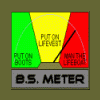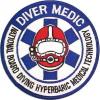Leaderboard
Popular Content
Showing content with the highest reputation on 06/28/2010 in all areas
-
I gotta say, I'm both encouraged by this thread and, well, disheartened. I'm very encouraged by the desire to have more education about stress, PTSD and ultimately, practitioner well being. Seeing that there may be a gap that I can take knowledge from my 2 passions and fill is an excellent motivator to create something "new" or at least improve upon what already exists. What disheartens me is the feedback that I am getting about lack of programming in so many different places. Honestly, I was hoping that I would get a lot of replies of "Oh, good idea but we have a great program here" or "A fresh idea would be nice to compliment our XXX program." One of the up and coming "trends" in psychology is something called Psychological First Aid. Very much like CPR is saving lives, PFA is starting to save minds. There is some great research being done right now on a broad scale as to the efficacy of the initial interventions, but the early results (which I have seen, but can't re-publish) are VERY promising. Now, PFA isn't an EMS thing, its coordinated and executed by Psychologists, but its principles of early debrief and guided recovery from incident to acceptance are what I really want to drive home for people. I must stress one big point, and I know I may offend a few people, and its not my intention, but it must be said. In House CISM debriefers and Counselors aren't psychologists. Some services outsource CISM to counseling firms where you will work with a psychologist, but the key is going through the process with a licensed clinical psychologist with experience in CISM and PTSD. The initial debrief, although very important, is only the first step to recovery. I'm sure everybody will agree with me that we rarely agree on anything... but we are all different. Finding the right approach for a person takes a lot of experience and training, and it is compounded by major traumatic events. Only a Psychologist (and occasionally Psychiatrist, but they train in very different ways)has the knowledge and base to work with you long term and create a solid treatment plan. I will probably be starting on this project very soon, and I hope to have a draft/demo up by the end of the month. I'm lucky enough to have most of the research done, which is the hard part.3 points
-
Ok, I guess it's 'confession time' here.... As an EMT, I looked at a lot of the medics I came in contact with as 'pompous asses' because of their attitudes toward the lower license levels. This thread has forced me to re-evaluate my position. As I climb through the license level ranks, I find more and more that there’s so much I DON’T know. I’m not the first EMT to come to this stark realization, and I know I won’t be the last to ‘figure it out’. Working my way through EMT, then EMT-I and eventually onto EMT-P, I find that when I was a ‘mere EMT’ I thought I knew it all. This feeling was great to hold onto, and gave me confidence to do my job. Then I went on to the EMT-I portion, and realized that I didn’t ‘know it all’ like I thought I did. But I learned more, and still felt good about it all. I was still confident, but looked at things differently. When I started my medic class, I quickly learned that what I really knew nothing more than oxygen, stop bleeding; and keep broken body parts from moving. Those that know my story know that I had to drop my medic class for reasons beyond my control. I haven’t given up, and will be working toward getting into the next class. As I wait for the next class to start, I realize how painfully inadequate my education has been, and how much I still have to learn just to be able to call myself ‘competent’. Terms like ‘good, great and exceptional’ will just have to wait. I do not deserve them … yet. As with every ‘confession’ comes the opportunity to eat a little crow. I think I’ll have mine with a generous dose of A-1, to make it more palatable. To all the medics that I call ‘friend’: I offer each and every one of you a sincere apology. While I thought that many of you were ‘harsh’ in how you dealt with the lower license levels, I’ve come to realize that it wasn’t out of ‘meanness’. You were challenging me to not only prove you wrong, but also push me into learning more. For that, I owe each of you a great deal of thanks and appreciation. This confession serves as a warning to all of those medics (and the Doc’s too!): Since you all have pushed me into going further than I thought I could, each and every one of you will be ‘hit up’ as an information source with even more questions than I’ve already hit you with! To everyone else: This site is a great place to ask questions, debate theories and ultimately LEARN. These ‘grouchy old medics’ may seem harsh and ‘mean’, but they’re only want you to push to be the best that you can be. We’re taking people’s lives into our hands, and the patient’s deserve more! When the ‘old hands’ around here challenge your posts; whether for content or spelling/grammar, they aren’t being ‘meanie-heads’, they’re pushing you to correct the ‘little mistakes’ before they snowball into ‘big ones’. One misspelled word on a PCR can change the entire meaning. It’s been said that those that have successfully completed the medic course (especially with a degree), have ‘forgotten where they came from’. Some have gotten ‘arrogant’ because they’ve completed the course; but most appear to be coming from the same position that the previously addressed medics are. In the United States, our EMS education is very lacking in content. The cliché “You don’t know what you don’t know’ is so very true. The ONLY way to get a glimpse of this is to pursue your education above and beyond the minimal course called ‘Emergency Medical Technician – Basic’! When I finish my degree, I hope to remain the same person that some of you have come to know and at least ‘like’. I’m going to push you as I always have to get more education. I’ve had to re-evaluate what I thought I knew and now have to look at things much differently than I did from the ‘safety’ of my EMT-B world. I hope that many of you will find yourselves in the same position! ER Doc, Thanks for reviving this thread!2 points
-
How many of you knew that the National EMS Memorial Service was held yesterday, in Colorado Springs and was available to view online? What is your view of it being held in Colorado Springs and not in D.C.? If you did see it, what do you think of the facilities? Have you ever participated?1 point
-
Now that I live in Pennsylvania, I completely get your point. I moved here to take a job with a company that wanted it's own MICU. I was the first street paramedic hired. All of the other services in the area that are ALS are hospital based squad units. Aside from my company, there are only two other companies in the general area that have a MICU service, and they are RARELY hiring because of a low turn over. It takes an act of God to get hired by the hospital services, and you generally have to know people on the inside to get a spot. After almost a year, the company I work for is considering going back to letting the hospital provide ALS coverage rendering me jobless. Now, if I were an EMT-B, I could have my pick of jobs, as there are a pile of BLS companies in the area. My point is that there are areas in the USA where being a paramedic is a detriment. I really never thought I'd end up unemployed as a paramedic. I always thought that if I did a good job, showed up for work, put in my best effort, and helped out when needed that I would always have a job. I only wonder if I will qualify for food stamps while I'm collecting my unemployment.1 point
-
Its a very simple answer actually. Here in NJ all ALS is hospital based. No squads, privates, or paid services are allowed to have a medic. If you want to be a medic you must work for the hospital. Not every hospital has an ALS unit and the ones that do have them, keep the number of medics ont he payroll very low to keep overhead down. Alot of carrer EMTs in the state do so because they work a regular full time job and cant afford to quit their job or carrer and persue the paramedic level of education and qualification with the uncertanty of finding a job when the become certified. I inquired about a medic level cert while I was doing my clinicals at a hospital with ALS. I told them I would be able to work nights, this way I could keep my carrer and continue my education, but was told unless I become a full time employee of the hospital I could not work for them. I said OK fine I can work a full time shift at night, they said no full time means I soley work for them that way they can schedule me whenever necessary. This is the biggest problem in our state right now. Alot of folks want to become Medics but with such restrictions around folks stay as EMTs so they can keep their regular jobs. I feel this is a problem but until the State Board Of Health begins allowing nonhospital based ALS this will continue. As for these folks not pushing themselves, yes some do the minimum, but most strive to continue their education and stay as current as possible with the latest in the field of emergent care. Just a quick not on our squads long timers, the 25yr person worked in the ER as an RN until retierment now serves our squad almost full time everyday. The 10yr folks are all ER techs with one in school right now becoming a PA. Some of the 2 to 5yr folks are younger guys and girls currently in college becoming RNs or PAs or higher. Using the experience on our squad to help further their understanding and education while in school. We also have a 7yr member that works for Medivac service as a flight medic and he is the one that complains the most about not being able to do his level of cert while on a BLS call with us. State regs dont allow him too. But with these folks and their experience in the fields of both ER and prehospital care I would not agree with them being mediocre. Not trying to be crass or anything with anyone and again I will state unequiviclly that NO EMT-B should be doing ANYTHING ALS or beyond their SOP.1 point
-
1 point
-
it's not rust it's barnacles. Seriously EMS like fire is losing to many of the gray hairs. There experience is the wisdom that will keep you out of trouble because they have been there and seen that. Hell they even have the t-shirt. That being said some senior people in our ranks are resistant to change and that slows us down. (I want to point out that I do not know Firedoc well enough for this statement to refer to him.)1 point
-
Strongly disagree. If it takes someone at least 6 months to a year to "master" the limited, basic skill set of an EMT in order to go to paramedic school, something is wrong. If I had my way, any John Doe could enroll directly into a paramedic program without EMT first, provided they had completed the pre-reqs to include human anatomy and physiology, intro to psych, chem 1, english. EDIT: this is why I do not like thread resuscitations. I incorrectly assumed the OP's thread cam about recently when in fact it is dated to 2006. I will leave my post above as it stands, but it is not my intention to start this type of debate in an ancient thread.0 points







